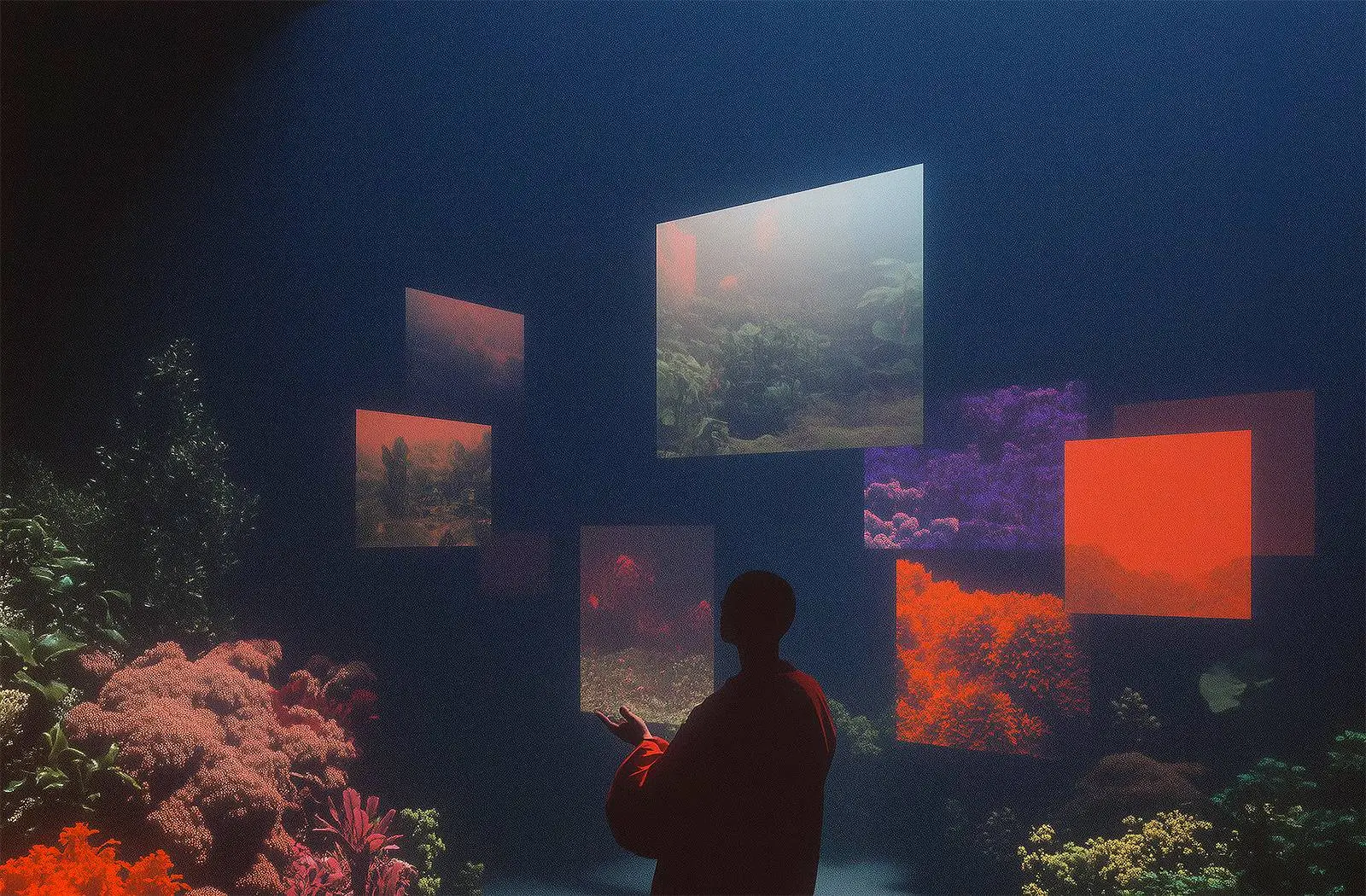
At Anthem Création, we hesitated for a long time to switch to Perplexity.ai’s Premium offer. We only needed access to the API for our automations, as the API works with credits and doesn’t necessarily require a Premium account. But the new Spaces functionality convinced us to take the plunge.
What are Perplexity Spaces?
The Perplexity Spaces are a revolutionary feature that is transforming the way we organize our searches.
Listen to the AI podcast :
Much like NotebookLM, this is an interactive space where you can group your personal files while harnessing the search power of AI.
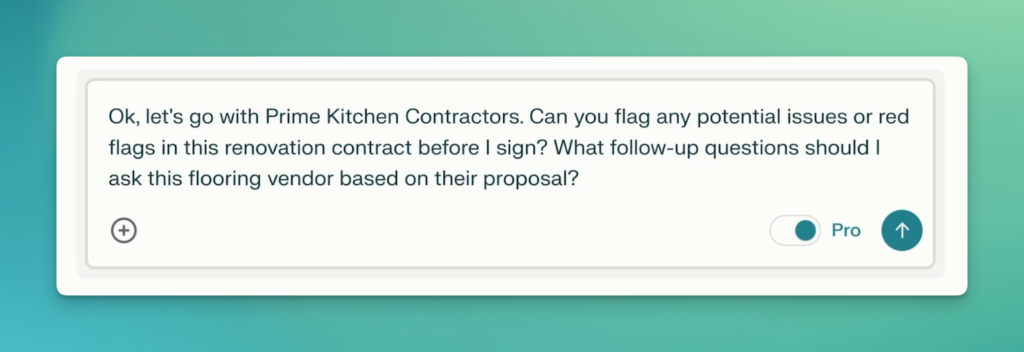
Spaces allow you to create a personalized knowledge hub, combining web searches and personal files. This has brought us decisive added value for project management and our AI watch.
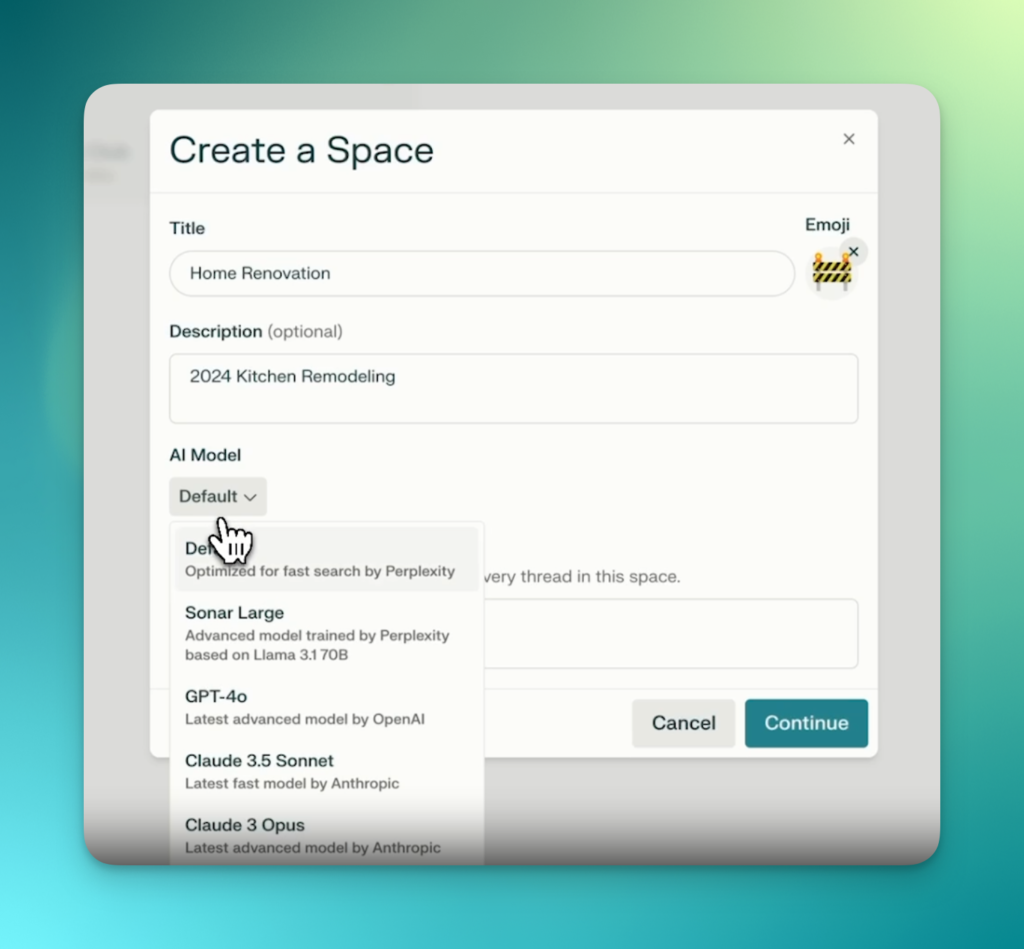
Users can create Themed Spaces based on their projects, interests or specific needs.
Each Space lets you upload up to 50 files, which can be PDF, Word, or other documents.
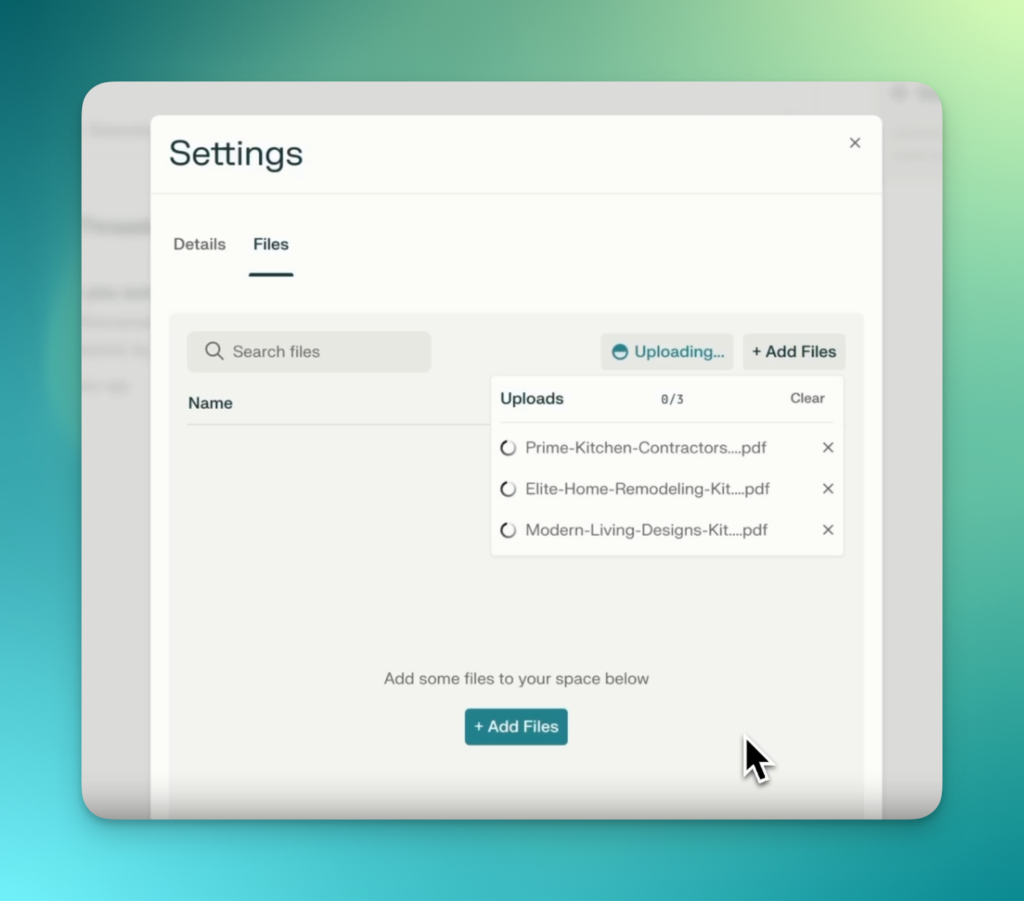
The ability to drag and drop these files greatly facilitates data organization. What’s more, Spaces offer the ability to invite up to 10 participants, enabling effective collaboration, whether for team projects or academic research.
The fusion of online and local AI search
One of the major strengths of Perplexity Spaces is their ability to optimize searches and deliver accurate, contextualized results.
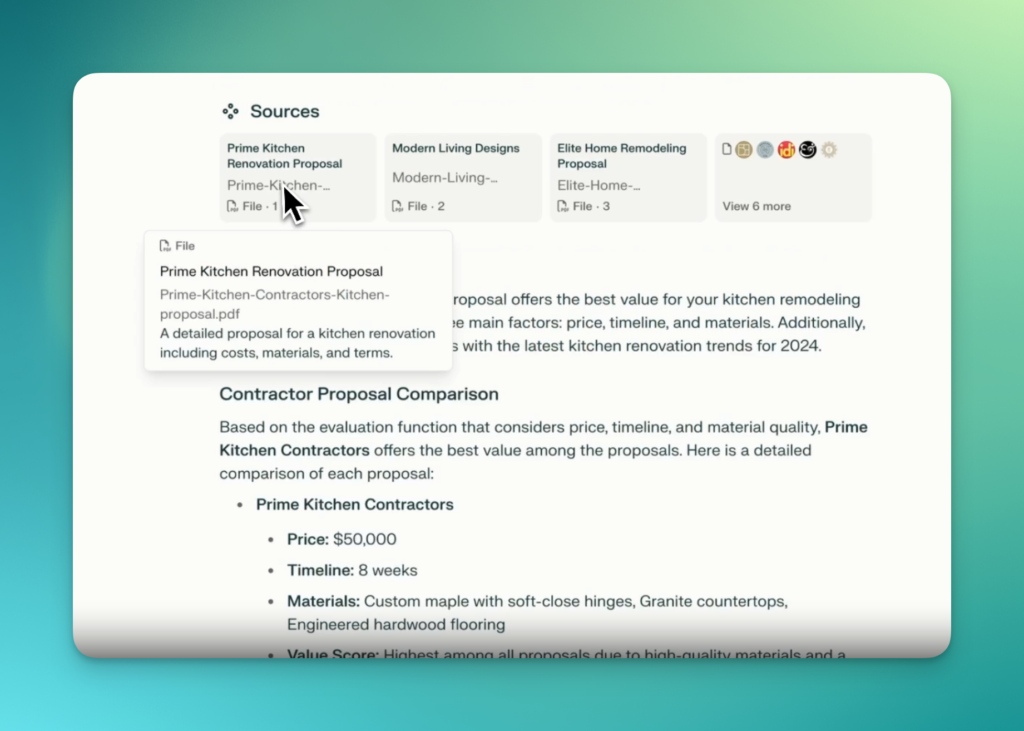
When a user asks a question, the AI can not only analyze the files you’ve downloaded, but also search the web to offer an enriched answer.
For example, when preparing our AI coaching, we used Spaces to organize key documents and perform in-depth contextual insights on our client’s specific sector.
This ability to merge data from personal files with web searches enabled us to obtain really interesting and immediately usable specific answers.
The flexibility offered by Spaces goes even further with the ability to choose which language model to use.
Whether you prefer GPT-4, Claude, Mistral, Sonar, this flexibility allows you to further refine response type, style, reasoning.
Here are the available models:
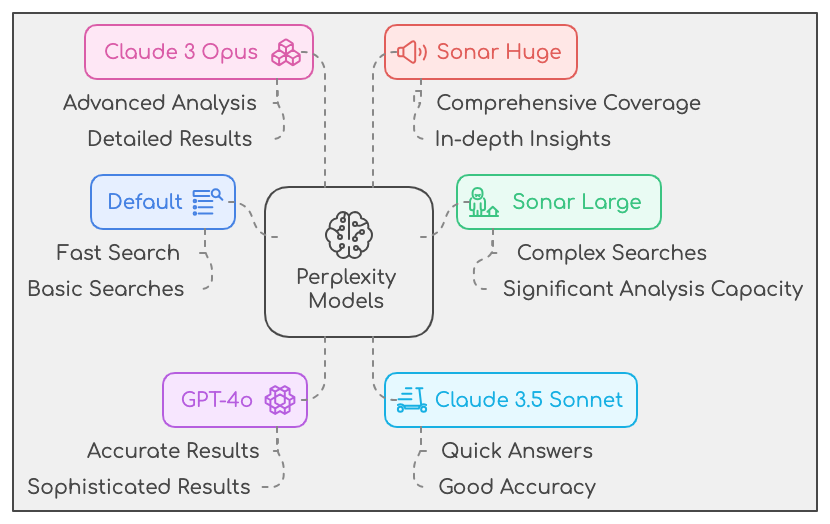
- Default: Optimized for fast Perplexity search, this template is suitable for basic searches that do not require in-depth analysis.
- Sonar Large: An advanced model developed by Perplexity, based on Llama 3.1 70B, ideal for complex searches requiring significant analysis capacity.
- GPT-4o: The latest advanced model offered by OpenAI, designed to deliver accurate and sophisticated results, ideal for projects involving a high level of complexity.
- Claude 3.5 Sonnet: A fast model developed by Anthropic, perfect for users looking for quick answers while maintaining a good level of accuracy.
- Claude 3 Opus: An advanced version of Claude, providing even more detailed and relevant results, particularly suited to projects requiring advanced analysis.
- Sonar Huge: Another advanced Perplexity model, based on Llama 3.1 405B, designed to offer in-depth insights and comprehensive coverage of the topics covered.
What’s interesting about Perplexity is that the models are optimized for inline searche, which won’t necessarily be the case for other LLMS
Users can even give customized instructions to the AI for each “Space” to guide how responses are generated, which is particularly useful for specific searches or complex projects.
Integration with perplexity pages: From search to content creation
Another important advantage of Perplexity Spaces is their integration with Perplexity Pages. This feature makes it easy to turn our searches into publishable content.
With one click, the information collected can be converted into well-structured blog posts, with titles and sections optimized fordirect publication on perplexity.ai and on the web. (Which is abonus for your SEO)
For content creators like us, the ability to generate an article structure or draft from stored searches is a welcome feature.
Comparison between free and premium versions
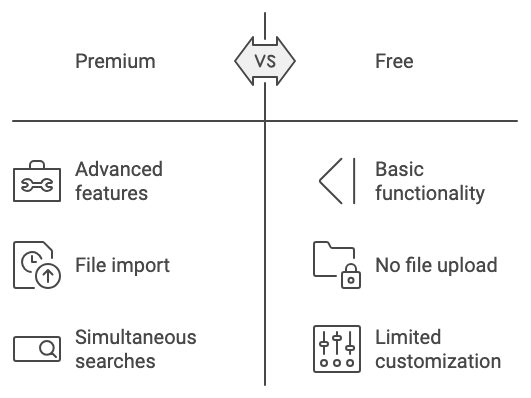
Perplexity Spaces areavailable to both free and paid users, but there are some notable differences:
- Free version: Offers basic search functionality and instruction customization. Users can use web search, but have no ability to upload personal files to Spaces
- Premium version: Provides access to advanced features, including the ability to import personal files and perform simultaneous web and file searches.
Practical uses of spaces
Perplexity Spaces can be used in a variety of contexts ranging from simple personal projects to more in-depth academic research.
Here are a few concrete examples:
Planning a marketing campaign: An individual entrepreneur can use Spaces to centralize all the elements needed for a marketing campaign, such as creative ideas, market data, and visuals.
By integrating these files with relevant web searches, it’s possible to refine the strategy and ensure that the campaign is well aligned with business objectives.Creating a business plan: Spaces can also be used to draw up a business plan.
By uploading financial documents, growth projections, and market analyses, the entrepreneur can ask AI questions to obtain specific recommendations and better structure his business plan.Organizing training sessions: An independent trainer can prepare a session by using Spaces to organize his teaching materials, frequently asked questions, and participant feedback.
By centralizing all this information, he can improve training content and make each session more interactive and relevant.
A Unique Collaboration Space
Spaces also offer a unique framework for collaboration.
Thanks to Spaces, we were able to structure our projects consistently and integrate contributions. The ability for each participant to ask questions, create Threads, and vote for the best answers has strengthened the commitment of our partners.
Why Spaces are an asset for our agency
Joining Perplexity.ai’s Spaces community was a strategic decision for Anthem Création.
AI tool licenses add up and represent a significant operating cost, so we’re demanding on the ROI these tools bring us.
Beyond the other benefits of the premium account, which we discussed in our previous article Perplexity or SearchGPT: What will your AI search engine be in 2025?, this functionality has enabled us to go further in structuring our searches and creating quality content for our customers in record time.
By combining the power of AI with an intuitive collaborative interface, Spaces pave the way for a new kind of teamwork, where productivity and knowledge go hand in hand.
Related Articles
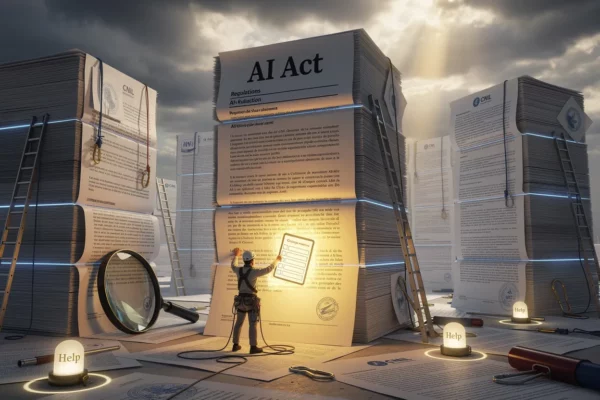
AI Act and CNIL: How AI Regulation Is Changing France in 2026
Artificial intelligence is weaving its way into our daily lives, often without us even noticing. Your bank’s chatbot, your email’s spam filter, the algorithm recommending shows on Netflix—all are AI…

AI accelerates: Is humanity in danger?
Between Planned Obsolescence of Human Labor and the Search for a New Social Contract We are living through a pivotal moment in human history. Artificial intelligence is no longer content…
